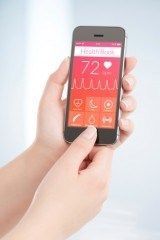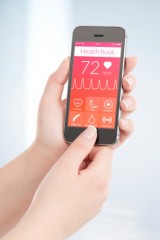
FDA Oversight on High-Risk Apps in Mobile Health Industry
FDA Oversight on High-Risk Apps in Mobile Health Industry
Mon Aug 31 2015

As the mobile health industry continues to progress and new innovations impact patient care, regulatory agencies are taking part in greater oversight of mHealth apps, wearable devices, and remote monitoring tools. From ensuring mobile apps are safe for use among patients to developing new reimbursement policies for healthcare providers offering telemedicine services, federal agencies are driving forward patient engagement and security in the mobile health industry.
The Food and Drug Administration (FDA) in particular plays a significant role in regulating the mobile health industry. According to a report released by the FDA called FDA's Role in Ensuring American Patients Have Access to Safe and Effective Medical Device Technology, the organization’s medical device regulatory program “is performing strongly across a wide range of performance measures.”
“These advances in the performance of the device program reflect a combination of programmatic improvements and innovative approaches to applying existing authorities, rather than changes to the basic framework for device oversight that was put in place almost 40 years ago. The existing framework assures that FDA's level of oversight matches the level of device risk, and applies flexible standards to premarket review of devices without compromising the standard for safety and effectiveness of devices,” the FDA report stated.
A more recent policy change that affects the mobile health industry instituted by the FDA was incorporating premarket and postmarket oversight of new technologies like mobile medical apps. The FDA has had to adapt its policies and regulations to new technologies in recent years.
For example, more oversight is being put toward health IT on medical devices and mobile health apps in order to ensure patient safety and effectiveness of the tool is of high quality. Specifically, mobile medical apps used to diagnose or treat patients receive the greatest FDA surveillance.
In recent years, the number of mobile health applications skyrocketed as new and innovative strategies and software tools were created. Due to this, the FDA decided it was necessary to update its regulations and provide more clarity for app developers, doctors, and patients.
In 2013, the FDA announced its new policy to advise and bring oversight toward mobile health applications that “pose the greatest risk to consumers.” More discretion was given toward mHealth apps that had little risk to consumers or patients.
This policy was instituted with the assistance of a preliminary health IT report from the Office of the National Coordinator for Health IT (ONC) and the Federal Communications Commission. More recently, the FDA offered further clarification in a new policy where the organization will not be exhibiting oversight on low-risk devices that play a part in advancing consumer engagement with health and wellness as well as chronic disease management.
On its website, the FDA issues more information on the type of mobile medical apps that it will apply enforcement and greater surveillance. These include apps that diagnose psychiatric disorders, mobile apps that offer guidance to pregnant women and those trying to quit smoking, mobile apps that offer reminders to patients with gum disease, tools that help pre-diabetics with their diet, and many more.
“When these items are not marketed, promoted or intended for use in the diagnosis of disease or other conditions, or in the cure, mitigation, treatment, or prevention of disease, or do not otherwise meet the definition of medical device, FDA does not regulate them,” the website stated. “When they are marketed, promoted or intended for use in the diagnosis of disease or other conditions, or in the cure, mitigation, treatment, or prevention of disease, or otherwise meet the definition of medical device, FDA intends to exercise enforcement discretion.”
The mobile health industry will need to pay attention to any new policies and regulations the FDA poses on mHealth apps and devices in the coming years. With strong oversight, the mobile health industry is sure to have a positive impact on patient care and safety throughout the nation.
This article was originally published on mHealth Intelligence.
